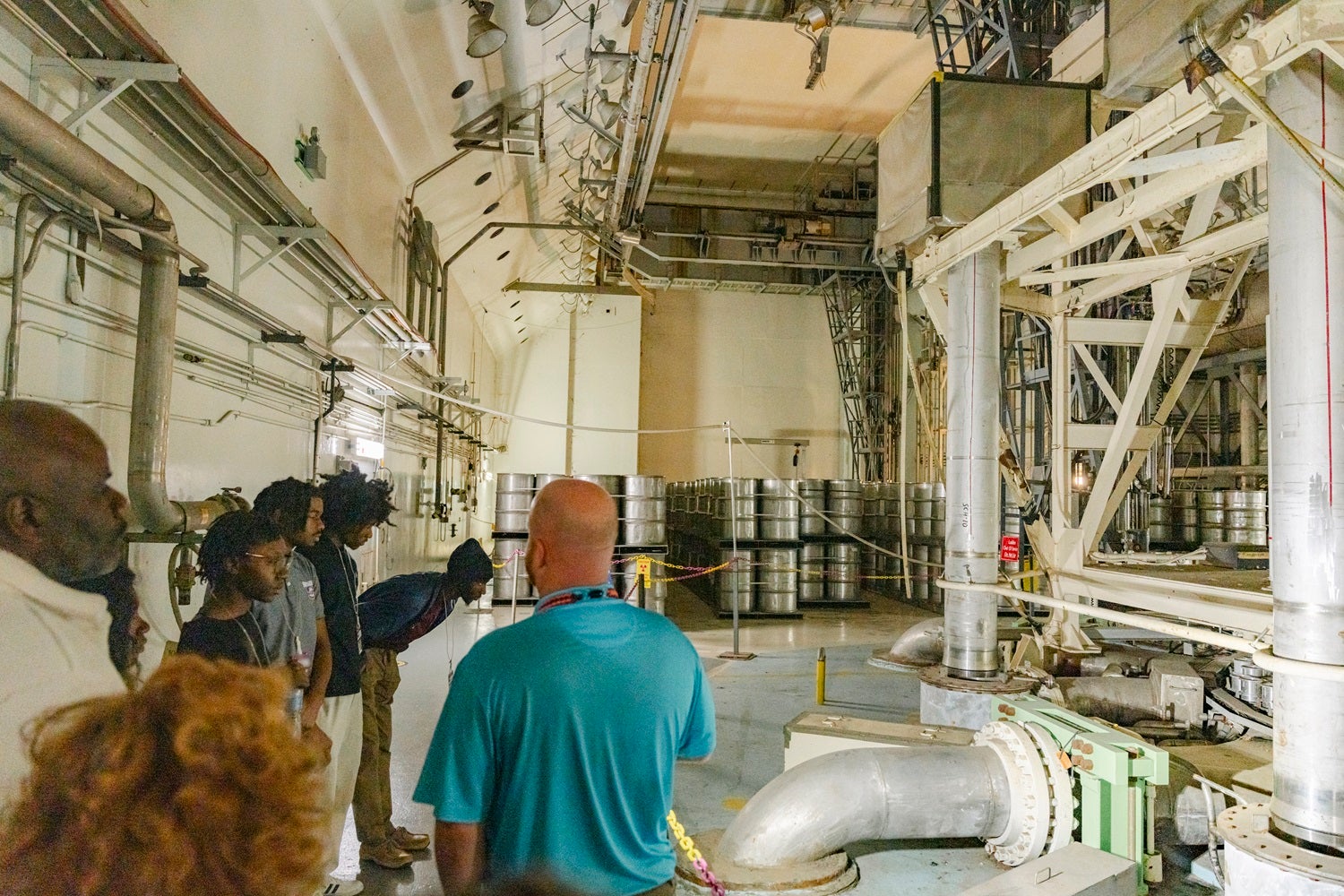Students and faculty from South Carolina State University (SCSU) and Claflin University recently took part in an immersive educational tour of the Savannah River Site (SRS), gaining valuable insights into the facility’s nuclear materials management and nonproliferation missions.
Organized by SRS Education Outreach Programs, the visit focused on the L Area, a repurposed reactor facility that plays a key role in the safe storage and processing of spent nuclear fuel.
The tour was led by Operations Manager Tristan Downey and emphasized the importance of nuclear fuel cycle management, from off-site fuel receipt to disassembly and eventual transfer to the H Canyon chemical separations facility.
“The visit centered around the safe management and handling of spent nuclear fuel,” said SRNS Education Outreach Lead Kim Mitchell. “The significance of these educational tours goes beyond just explaining what we do— it emphasizes why we do it.”
Since 1964, L Basin has received and safely stored an estimated 47,000 fuel assemblies from both foreign and domestic research reactors, according to a press release from SRS.
Students were able to explore underwater basin operations and observe the unloading of aluminum-clad uranium fuel into specialized bundles for storage and later transport.
Amonté Middleton, a junior nuclear engineering student from Orangeburg County, expressed awe at the complexity of the operations.
“The Site was intimidating at first because of its size, but the tour made me want to explore even more. Seeing how spent fuel is managed and processed was very impressive,” she said.
Civil engineering student Jayden Briggs, from Florence, S.C., was particularly struck by the L Area control room.
“The cautiousness required in the control room was eye-opening. The tour educated me on what SRS truly does and provided a strong sense of national security,” he said.
Douglas Barnes, a career counselor at Claflin University, emphasized the broader impact of the visit.
“I plan to share the insights gained from the tour with Claflin students, informing them about internships and entry-level positions at SRS,” Barnes said. “I’m interested in future collaborations and ongoing visits to the Site.”
Through first-hand exposure to real-world nuclear operations, the tour offered students a deeper understanding of their academic fields and illuminated career opportunities in nuclear science, engineering, and national defense, according to a press release from SRS.
The experience served as a bridge between classroom theory and the vital, often unseen work of national security and nuclear stewardship.










